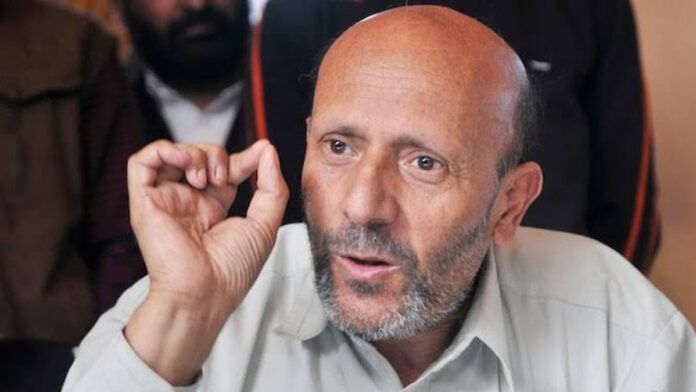DH NEWS SERVICE
New Delhi, Mar 26
The Delhi High Court has allowed Jammu and Kashmir MP Abdul Rashid Sheikh, alias Engineer Rashid, arrested in a terror funding case, to attend the ongoing Parliament session “in-custody” and rejected NIA’s apprehension that he was a flight risk.
A bench of Justices Chandra Dhari Singh and Anup Jairam Bhambhani directed the director general (prisons) that Rashid would be escorted by plain clothed policemen from prison to Parliament on days of the Lok Sabha session between March 26 and April 4.
The Baramulla MP, the bench said, would be handed over to the custody of the Parliament security or marshals, who would allow him to attend the proceedings and he could avail other facilities and amenities there.
“While out to attend the Parliament session, the appellant (Rashid) shall not be entitled to use any cellular or landline phone or other communication device; nor shall he be entitled to have access to the internet by any mode,” the bench’s March 25 order said.
Rashid, who was represented by senior advocate N Hariharan and advocate Vikhyat Oberoi, was directed not to interact with anyone out of jail, except within the Parliament precincts.
He should not engage with or address the media in any manner, the court said, including his pending criminal case.
The bench asked Rashid to bear the expenses for the to-and-fro travel and other arrangements.
Rashid, who is facing trial under the Unlawful Activities (Prevention) Act (UAPA) in a 2017 terror funding case, had challenged a March 10 trial court order refusing him custody parole or interim bail to attend Lok Sabha proceedings till April 4.
In the high court, he gave up his plea for interim bail or custody parole and sought to attend the Parliament sessions “in-custody”.
The NIA opposed the plea saying by allowing him to attend Parliament, would enable him a platform to air his opinions which he could misuse.
The high court, however, said the control of parliamentary proceedings was within the remit of the Lok Sabha speaker and it had no doubt that the proceedings would be conducted with requisite discipline.
“This court is confident that subject to the conditions that the court proposes to impose by this order, the state machinery would be able to ensure the integrity of the appellant’s custody, so that he remains available to face trial,” the bench said.
The bench said NIA’s apprehension that once Rashid was within the precincts of Parliament, and inside the house, he would cease to be “in-custody” of the court, was “without basis”.
“The appellant would only temporarily be handed over to the Parliament security detail and that too for the limited purpose of performing his duties as a MP of his constituency. Furthermore, the NIA?s submission that the appellant, who is an elected MP, would be a flight-risk within the precincts of Parliament, is to be heard only to be rejected,” it said.
The court urged the secretary general of the Lok Sabha to ensure compliance of the conditions according to parliamentary rules, to ensure that Rashid’s judicial custody was not compromised.
The bench said though there was no doubt Rashid was accused in a serious case of UAPA and had been in judicial custody since his arrest on August 9, 2019, as an MP he owed “to the people of his constituency the duty and responsibility to represent them in Parliament”.
The Baramulla MP, who defeated Omar Abdullah in the 2024 Lok Sabha polls, is facing trial in a terror funding case with allegations that he funded separatists and terror groups in Jammu and Kashmir.
He has been lodged in Delhi’s Tihar Jail since 2019 after the NIA arrested him in the 2017 terror-funding case. He was granted interim bail for one month in September last year to campaign in the Jammu and Kashmir Assembly election.
The NIA’s FIR alleged Rashid’s name cropped up during the interrogation of businessman and co-accused Zahoor Watali.
After being chargesheeted in October 2019, a special NIA court framed charges against Rashid and others in March 2022 under Sections 120B (criminal conspiracy), 121 (waging war against the government), and 124A (sedition) of the Indian Penal Code and for offences relating to terrorist acts and terror funding under UAPA.



























